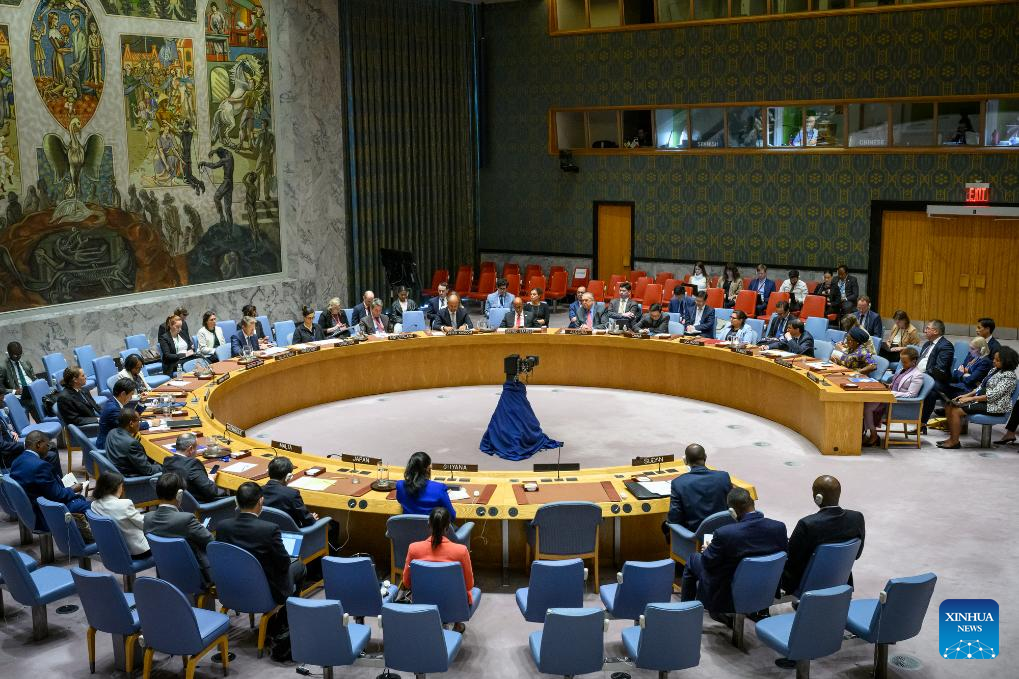
A United Nations Security Council briefing on Sudan is held at the UN headquarters in New York, on Sept. 18, 2024. Dai Bing, China's deputy permanent representative to the United Nations, on Wednesday urged the UN Security Council to make more efforts to push conflicting parties in Sudan towards a political solution. (Loey Felipe/UN Photo/Handout via Xinhua)
UNITED NATIONS, Sept. 11 (Xinhua) -- A Chinese envoy on Wednesday urged the UN Security Council to make more efforts to push conflicting parties in Sudan towards a political solution.
"At this moment, the Council should channel more of its energies into pushing the parties towards dialogue and engagement in search of a political solution, while helping Sudan build up its humanitarian response capacity to stop the humanitarian crisis from worsening even further," Dai Bing, China's deputy permanent representative to the United Nations, said in his explanation of vote on the Security Council draft resolution on sanctions against Sudan.
Dai noted that the conflict in Sudan has dragged on for over one and a half years "with no sign of de-escalation in sight," and the worsening humanitarian situation has put millions of Sudanese civilians in the face of multiple challenges.
In this context, the renewal of the sanctions measures will go some way towards stemming the steady flow of illicit arms into the battlefield and calming down and de-escalating the situation on the ground, he said.
"This is what the international community wants and what this Council has duty to do, and that's why China voted in favor of the draft resolution that was put to a vote a moment ago," said the ambassador.
Dai renewed the call for the parties to the conflict to put their country and people's interests first, respect international humanitarian law to the letter, and provide maximum protection to civilians and civilian facilities without causing further harm or damage.
Calling on all UN member states to observe the arms embargo and take constructive and tangible actions to help Sudan cease hostilities and return to lasting peace, the ambassador stressed that "sanctions are a means, not an end," and "they must not replace diplomacy, much less become a tool of political pressurization in the service of some countries."
He urged the international community to respect Sudan's sovereignty and territorial integrity and try to secure more support and cooperation from the Sudanese government, and the penholder to likewise fully respect the Sudanese government's legitimate concerns and aspirations and effectively forge greater consensus among the parties without slipping in political self-interests. ■



